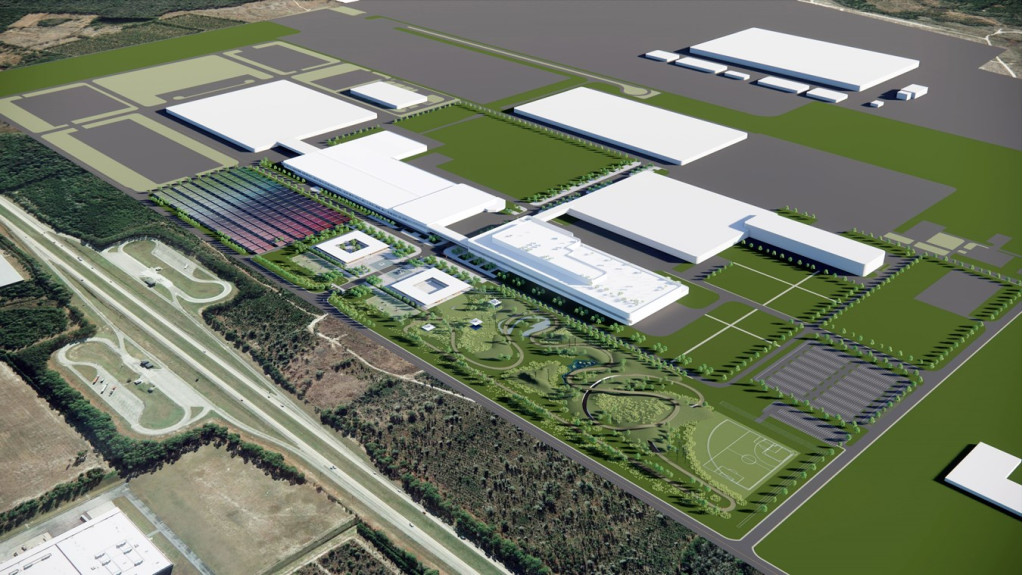New factories producing EVs and their batteries are bringing more jobs to the Southeast, but utilities are trying to meet the power demands of these factories with natural-gas power plants rather than renewable energy, reports Energy News Network.
Anticipated demand from the auto industry—as well as solar-panel manufacturing and data centers—is leading utilities to forecast single-digit percentage growth every year through the end of the decade in some regions, according to report.
That’s a big change considering that demand has stayed flat—or declined—in most of the U.S. for the past decade and a half.

Scout EV plant groundbreaking
In the Southeast, major utilities seem more focused on natural gas as the solution for meeting this anticipated demand. The Georgia Public Service Commission just this week approved utility Georgia Power’s plan to build three new methane and oil-burning plants, as well as to buy energy from sister company Mississippi power, delaying retirement of one of that company’s coal-fired plants, according to the Southern Environmental Law Center.
Duke Energy recently added more gas-fired plants to supply power in North Carolina and South Carolina, and lawmakers in the latter state have fast-tracked construction of an additional new gas-fired plant, according to the report. And the federal Tennessee Valley Authority is reportedly developing a plan that could include new gas-fired power plants as replacements for coal plants.
Electricity from natural gas is broadly better than electricity from coal—or gasoline itself, in cars—but it still pollutes, producing sulfur dioxide, oxides of nitrogen (NOx), and more. And of course there’s CO2, so it doesn’t provide the carbon gains of power from solar, wind, or hydro-electric sources. Even if electricity demand rises to meet projections and additional power-generation capacity is needed, the question remains whether continuing with natural gas is necessary, rather than adding renewables.

Kia EV manufacturing in Georgia
This reaches back to concerns voiced years ago when automakers started announcing new EV factories and battery facilities in places where cheap coal-based energy could be bought. The vast majority of EV and battery plants are being sited in Southern states eager for the jobs, but led by Republicans who paradoxically fight policy nurturing EV production but will generally gladly take credit for the manufacturing the incentives help bring.
Once EVs and their batteries are built, grid upgrades may also be needed to support charging, a 2020 report claimed. But various studies suggest that, eventually, EVs will drive the long-term cost of electricity down.

